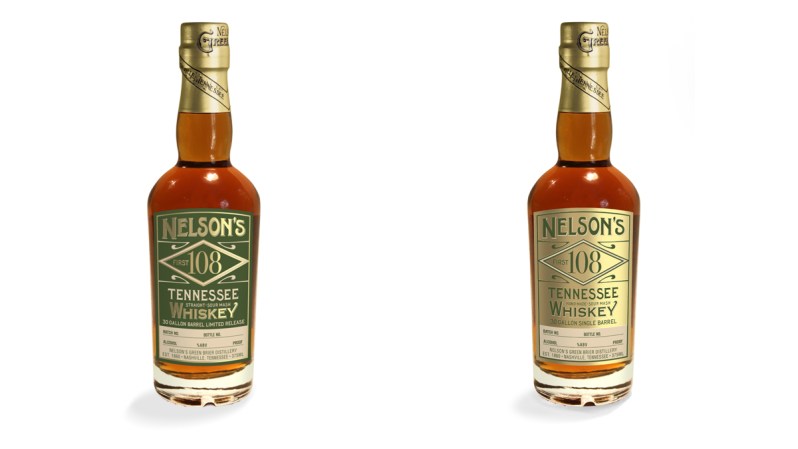There’s a new Tennessee whiskey on the block, even though it isn’t really new at all. Nelson’s Green Brier Distillery, the creators of Belle Meade bourbon (and some pretty damn good special releases) has resurrected a recipe from the 1800s, bringing the first Tennessee whiskey back into production.
Released on July 4th (the birthday of Charles Nelson, the original distiller in the family), Nelson’s First 108 is a commemoration of the last time Green Brier Tennessee Whiskey was produced, one hundred and eight years ago (Charles Nelson closed the distillery in 1909 because of Prohibition).

The whiskey is wheated, omitting the rye that now finds its way into Tennessee whiskeys. In addition, only 108 30-gallon barrels were created two years ago when the recipe was produced by the current owners of the distillery, Andy and Charlie Nelson.
From those 108 barrels, approximately 2000 cases of 375mL bottles were produced, split between two different versions of the release. The “green label” will contain a 90-proof blend while the “gold label” will be a single barrel expression that is released at cask strength.
Once the first set of cases are gone, they’re gone. Future distillations will be produced in full-size 53-gallon barrels, which will yield a whiskey of a slightly different flavor due to the surface area contact between wood and whiskey. The first bottles of 53-gallon Tennessee whiskey will be released in 2019, with four years of aging under their belt.
With so few bottles available, the best bet is to get yourself down to Nashville and get some before it’s gone. Thankfully, the Tennessee Whiskey Trail has the perfect plan in place, allowing you to not only check out Nelson’s Green Brier Distillery, but every other distillery in Tennessee, too.



